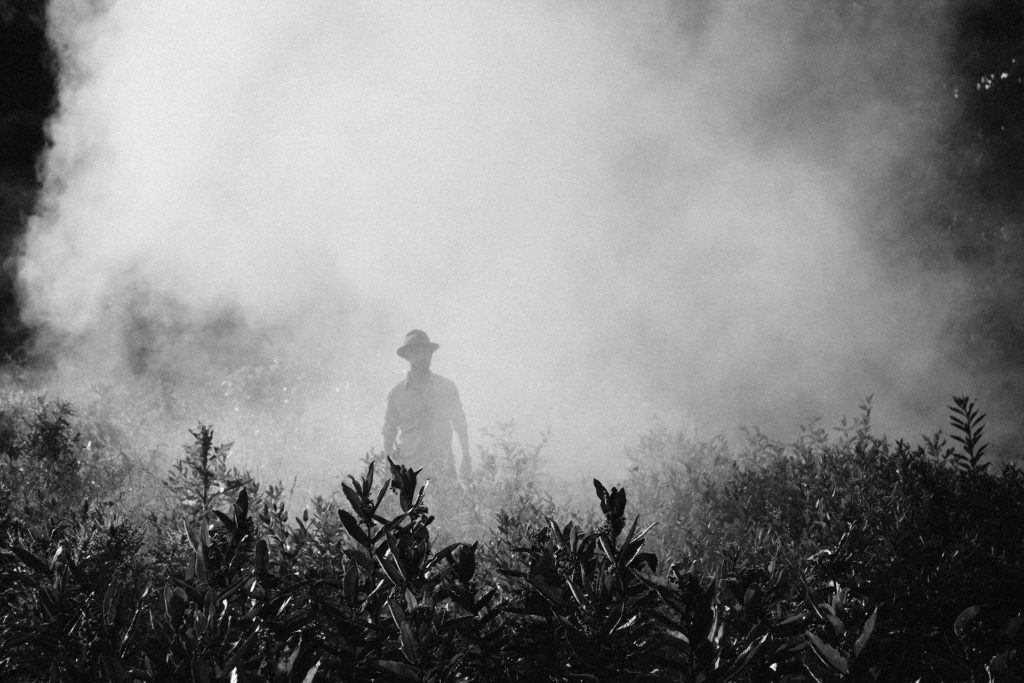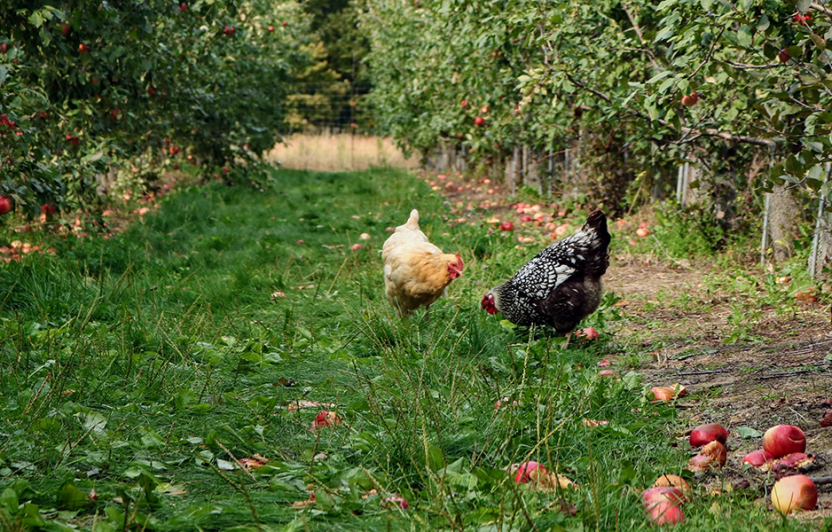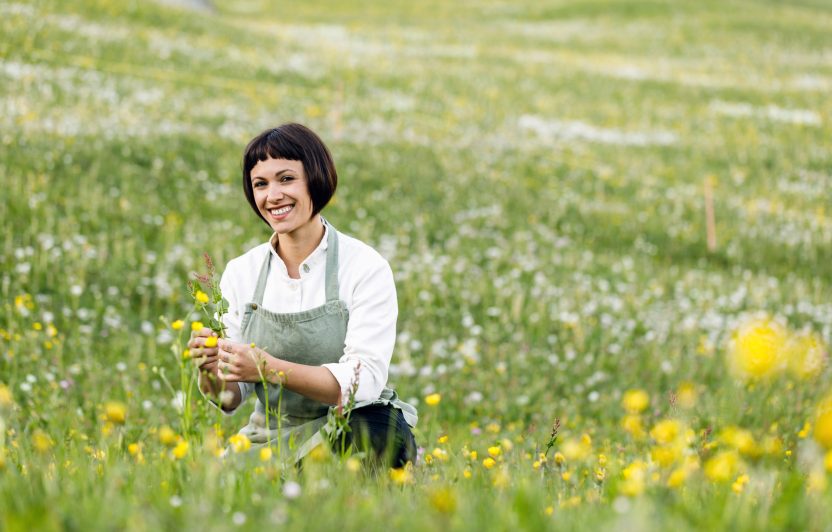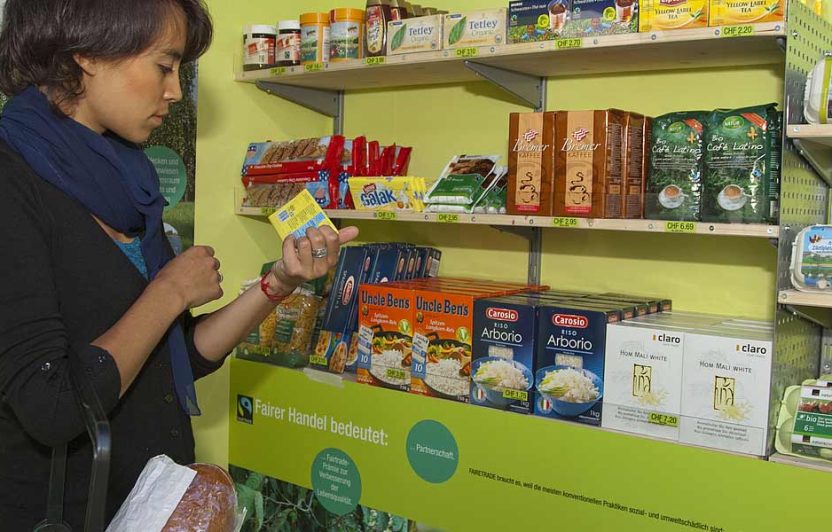
Food production close to nature and environmentally friendly
When farmers and entomologists realised that DDT pesticides had a very non-specific effect, destroying not only pests but also beneficial insects such as bees and other pollinators, there was great concern. The toxins, which entered the groundwater and also accumulated in food, threatened sensitive ecosystems as well as insects, birds and fish. And last but not least: human health.
No sooner was the insecticide DDT in agricultural use than it divided farmers into two camps: one group saw DDT as an achievement and advocated its use against harmful insects. The other group was worried about the impact on the environment, and considered the use of insecticides to be a harmful interference with nature.
The farmers who were critical of DDT were drawn to new forms of agriculture based on natural cycles, such as biodynamic or organic farming. The premise was that food production should go hand in hand with environmental protection. This led to the development of the basic values of organic farming, which were finally enshrined in the Swiss Organic Farming Ordinance in 1997. Since organic farmers work particularly closely with nature and in an environmentally-friendly way, they receive higher direct payments by way of support from the federal government.
At the same time, similar movements emerged in Germany and Austria, which became increasingly networked over the years. Today, organic associations are active in many countries around the world. They are organised by the International Federation of Organic Agriculture Movements IFOAM.
Through the jungle of Swiss organic labels
But what does “organic” actually mean? What requirements do companies have to comply with today?
In addition to the statutory Organic Farming ordinance, there are labels such as Bio Suisse which sometimes set out stricter specifications. For Swiss organic farms, the legal requirements of the Organic Farming Ordinance apply first and foremost: it stipulates that elements such as hedges, species-rich meadows, standard fruit trees and other near-natural habitats must be created on seven percent of agricultural land. Another central requirement is that natural cycles and processes must be respected, and synthetic chemical additives such as pesticides avoided. Similarly, genetically modified organisms (GMOs) must not be used, and produce must not be treated with radiation, for example to delay the ripening of fruit and vegetables and to kill insects.
The quantity of livestock on a farm must be in line with the surface area used for agriculture. This is because the maximum number of animals must be kept low enough for it to be possible for the corresponding manure and slurry to be spread on enough land as farmyard fertiliser. More than 60 percent of the feed for ruminants must consist of hay, grass or silage.
Stricter guidelines for Bio Suisse
The requirements of labels such as Bio Suisse (Knospe) are much stricter than those of the national Organic Farming Ordinance. For example, it is mandatory for the whole farm to be managed according to organic standards, which is not compulsory under the Organic Farming Ordinance.
Bio-Suisse farmers must also demonstrate measures to promote biodiversity. The use of plant protection products (pesticides) is strictly regulated, as is the heating of greenhouses in winter. The specifications for animal feed are also stricter, as cows must be fed about at least 90 percent hay, grass or silage from the farm’s own organic production. All Knospe farms must produce sustainability reports and meet minimum social standards.
An assessment by the Research Institute of Organic Agriculture (FiBL) showed that many Bio-Suisse farms perform “well” to “very well” on most sustainability criteria.
Crop diversity in organic farming protects against pests
All in all, organic farming tries to achieve a colourful diversity of different plants and animals that live alongside and with one another in harmony. For example, diversity of crops in organic farming is the most effective protection against excessive pest infestation, confirms Mathias Forster, managing director of the Bio-Foundation Switzerland. As seen in the past with DDT, which has been banned since 1972, synthetic pesticides not only have an effect on what are referred to as the target organisms, but also damage or kill “useful” living organisms, often including natural counterparts of pests.
The gradual understanding of the overall connections between sustainable agriculture and health strengthens many organic farmers in their conviction that they are on the right path. They realize that healthy and fertile soils mean healthy plants and water in the long term, which means healthy animals and, of course, healthy people.





